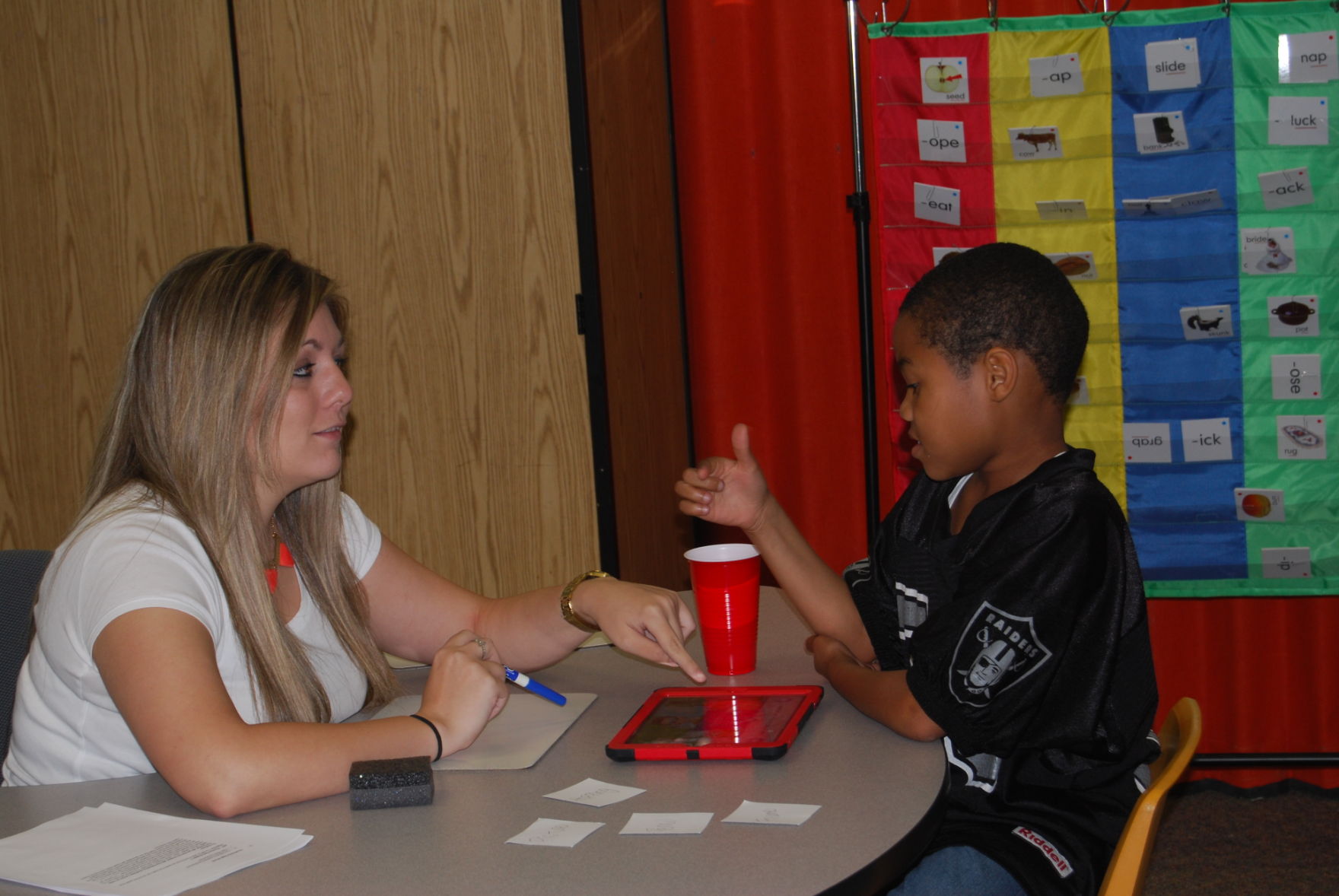Terrebonne hopes to SPARC area’s youth with program
October 21, 2014
Terror suspect remains in Houma’s jail
October 21, 2014Youngsters in Nicholls State University’s education program are going high-tech with the Technology Assisted Reading Interventions project in hopes of improving their reading skills.
First to fifth graders are being taught by Nicholls’ junior and senior education majors, known as “candidates,” enrolled in Education 402 and 403.
Apple’s iPad will be the primary learning tool, which each candidate received at the beginning of the semester.
“It is a motivational thing,” Associate Professor Dr. Cynthia Vavasseur said. “The goal is to improve reading skills. As we use the iPads, the kids want to improve their reading skills when they see the iPads.”
Vavasseur, along with Associate Professor Dr. Fran Crochet, created and funded the program with a $43,600 grant provided by the Louisiana Board of Regents.
The project will be held over a 10-week period with two-hour sessions every Wednesday.
“Traditionally, they have tutored students in paper and pencil methods,” Vavasseur said. “The new idea is to put iPads and apps that have been researched and proven to improve reading skills.”
Among the applications the program uses is Same Meaning, which is designed to help students with synonyms. There is also an antonym application called Opposites.
Another program utilized is iStory, which is similar to the Kindle. Students can read stories, but with iStory, they can click any unfamiliar words and look up the meaning quickly.
Senior education major Braxton Head said the technology has helped students stay focused.
“You need technology because students are not interested without it,” Head said.
The candidate said his student has been great to work with. In just four sessions, Head said he has noticed improvement.
“The progress has been great. It has not been anything dramatic because it has only been four sessions,” Head said. “His reading level has improved. He was at 120 words per minute, which is 10 words below (the average) level. He is now at 128 words per minute.”
In addition to helping with his student’s reading rate, he has also helped his student overcome the obstacle of inflection while reading.
“When he reads, he does not use forms of punctuation or expression. The apps have helped him to read better,” Head said. “I have worked with him on expressions. I will read to him and then have him read it exactly how I read it to show him what the sentence should sound like.”
The candidates will keep track of their students’ progress through the use of e-books, which will be published on iBook.
“It will provide a free service for local teachers and parents that may have a struggling reader,” Vavasseur said. “This is an ongoing project. Every semester, we will do this so it will be added to our interactive e-book.”
The e-book will help pinpoint students’ focus points, dividing them by age, grade and other factors.
“That is why they are doing this e-book,” Crochet said. “It states what each activity was beneficial for and what grade level it worked for.”
In addition to apps, the project also features language experience, which is designed to help students brainstorm, develop rough drafts, revise, edit and submit a final copy based on a topic that is discussed in group sessions.
“It develops the writing process. Everybody participates in the experience and then goes back to their desk and writes about it,” Crochet said. “This ensures you can do the process because you just did the activity. It is supposed to be fun, but it is also supposed to be relatively quick and easy.”
The project has received positive feedback from candidates and students.
Colston Wheaten, a second grader at Max Charter School, was joyful when talking about the project. Colston was working on learning the definitions of words he did not know.
“I like to do the activities. It is fun,” the second-grader said. “They help me learn the words because you have to match them together with the letter.”
Crochet and Vavesseur plan to take their idea to a national and global scale as they have already been accepted to two national conferences, including the American Association of Colleges for Teacher Education.
AACTE is designed to ensure that educators are ready to teach upon graduation, based on evidence through programs, such as TARI.
They also have the International Society for Technology in Education and International Reading Association, pending acceptance.
Senior Megan Luke is not tutoring students but is volunteering as part of her senior thesis to help her fellow classmates and professors.
“Dr. Vavasseur presented me with the idea of using technology for student learning. It sounded fun because iPads are fun. It is new and exciting. Plus, it could benefit all teachers. It could benefit me and other teachers,” Luke said. “I have been doing research and creating some of the presentations. If the iPad stops working, I am there to help. I am just doing some of the work that others cannot do.”
From personal experience, the senior believes the use of iPads can only help both the future teachers and young students.
“The other day, I was teaching ratios to a fifth-grade classroom at St. Genevieve. I had mentioned something about a number sign and one little boy raises his hand and said, ‘Excuse me ma’am, that is not a number sign. It is a hashtag from Twitter,’” Luke said.
“They are going to use technology in their everyday lives, and they will continue using it, probably,” she added. “It is important to embrace technology in education.”










